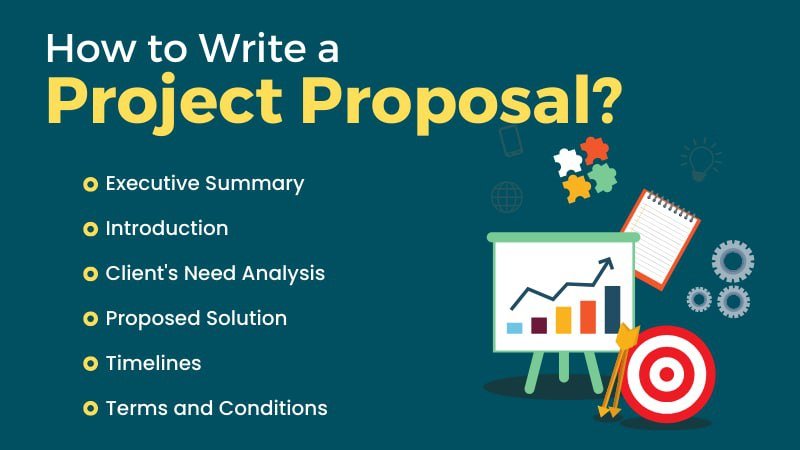Proposal writing and management is the process of preparing, organizing, and overseeing proposals to secure business opportunities. It combines both the creative aspect of persuasive writing and the organizational skills needed to manage multiple tasks, deadlines, and contributors. A proposal is more than just a document—it represents a company’s ability to provide solutions, demonstrate credibility, and establish trust with clients.
This process begins with understanding client needs and tailoring the content accordingly. A strong proposal highlights the value a company brings, differentiates it from competitors, and outlines clear solutions. Proposal management ensures that the entire effort is structured, deadlines are met, and the final submission is polished and professional.
Effective proposal writing and management require collaboration across departments. Sales teams, subject matter experts, and project managers often work together to provide input and refine the content. When done properly, this approach not only increases the chances of winning contracts but also strengthens relationships with clients by showing commitment and professionalism.
Key Elements of Effective Proposal Writing
Clear Understanding of Client Needs
Every successful proposal begins with a deep understanding of the client’s requirements. Businesses must invest time in researching the client’s goals, challenges, and expectations. By doing so, they can tailor their proposals to directly address those needs instead of offering generic solutions.
This understanding goes beyond reading the request for proposal. It may involve conversations with stakeholders, market research, and analyzing previous client interactions. When a proposal reflects this insight, it shows the client that the organization has invested in understanding them, making it more persuasive and impactful.
A client-centered approach increases trust and demonstrates that the company is not just selling services but is genuinely focused on solving problems. This level of personalization often becomes the deciding factor in winning contracts.
Strong Value Proposition
A clear value proposition is another key element of effective proposal writing. Clients want to know not only what a company can deliver but also why they should choose it over competitors. A strong value proposition highlights unique strengths, expertise, and benefits that directly match the client’s priorities.
This may include cost efficiency, innovative solutions, proven track records, or exceptional customer support. Instead of simply listing capabilities, a proposal should connect these strengths to the client’s needs. For example, instead of stating “we provide technical support,” it could emphasize “our 24/7 technical support ensures uninterrupted operations, reducing downtime and maximizing client productivity.”
By focusing on value rather than features, proposals become more compelling and memorable to decision-makers.
Importance of Proposal Management
Structured Process and Organization
Proposal management involves setting up a structured process that ensures smooth coordination among different contributors. This includes defining timelines, assigning responsibilities, and ensuring compliance with client requirements. Without a clear process, proposals can become disorganized, rushed, and less competitive.
A structured approach helps maintain consistency across documents. From formatting and style to messaging and tone, proposal managers ensure that every section aligns with the overall strategy. This creates a professional impression and reinforces the organization’s reliability.
Moreover, structured management reduces the risk of errors. By implementing review checkpoints and approval stages, organizations can submit proposals that are accurate, polished, and aligned with client expectations.
Collaboration Across Teams
Proposal management requires collaboration between multiple departments. Sales teams provide client insights, technical experts contribute detailed solutions, finance teams confirm pricing, and marketing ensures alignment with brand messaging. Coordinating these inputs is essential for creating comprehensive proposals.
Collaboration also ensures that proposals are realistic and achievable. When project managers and technical teams are involved early, they can confirm that commitments made in the proposal can be delivered without issues. This builds credibility and prevents future challenges during project execution.
Through effective collaboration, proposals reflect the collective expertise of the organization, making them more persuasive and credible to clients.
Benefits of Effective Proposal Writing and Management
Strong proposal writing and management practices provide numerous benefits. The most obvious advantage is higher win rates. Well-structured, client-focused proposals stand out in competitive environments, increasing the chances of success.
Another benefit is efficiency. By following structured processes, businesses can save time and reduce last-minute stress. Templates, workflows, and collaboration tools streamline the process, allowing teams to focus more on strategy and less on administrative tasks.
Effective proposals also strengthen relationships with clients. A well-prepared document demonstrates professionalism and commitment, which enhances trust. Even if a proposal does not result in an immediate win, it often leaves a positive impression that can lead to future opportunities.
Overall, strong proposal practices enhance both short-term outcomes and long-term growth by combining efficiency, professionalism, and strategic communication.
Challenges in Proposal Writing and Management
Despite its benefits, proposal writing and management also present challenges. One common challenge is time pressure. Deadlines are often tight, leaving little room for revisions or adjustments. Without proper planning, this can lead to rushed proposals that fail to impress.
Another challenge is balancing standardization with customization. While templates and guidelines ensure efficiency, every proposal must still be tailored to the client’s unique needs. Striking the right balance between consistency and personalization requires skill and experience.
Collaboration across teams can also be challenging, especially in large organizations. Miscommunication or delays in receiving input can slow down the process. Proposal managers must act as coordinators, ensuring everyone stays aligned and on schedule.
By acknowledging these challenges, businesses can refine their processes, adopt better tools, and train teams to improve efficiency and quality.
Future of Proposal Writing and Management
The future of proposal writing and management will be shaped by technology and automation. Artificial intelligence tools are already helping businesses draft proposals, analyze client data, and suggest improvements. These technologies speed up the process and provide valuable insights that increase competitiveness.
However, human expertise will remain critical. While technology can handle formatting, grammar, and data analysis, humans bring empathy, creativity, and storytelling to proposals. Clients still value the personal touch that demonstrates genuine understanding and commitment.
As competition intensifies, businesses that combine technological tools with human insight will have the greatest advantage. Proposal writing and management will become more data-driven, collaborative, and client-focused, setting new standards for success.
Conclusion
Proposal writing and management is a strategic process that blends persuasive communication with organizational discipline. By focusing on client needs, presenting strong value propositions, and ensuring structured management, businesses can significantly increase their chances of winning contracts.While challenges such as tight deadlines and team coordination exist, adopting clear processes and leveraging new technologies can overcome these barriers. The future promises even more opportunities through the integration of AI with human creativity, ensuring proposals remain both efficient and impactful.Organizations that master proposal writing and management will not only secure more contracts but also build stronger client relationships, driving long-term growth and success.




